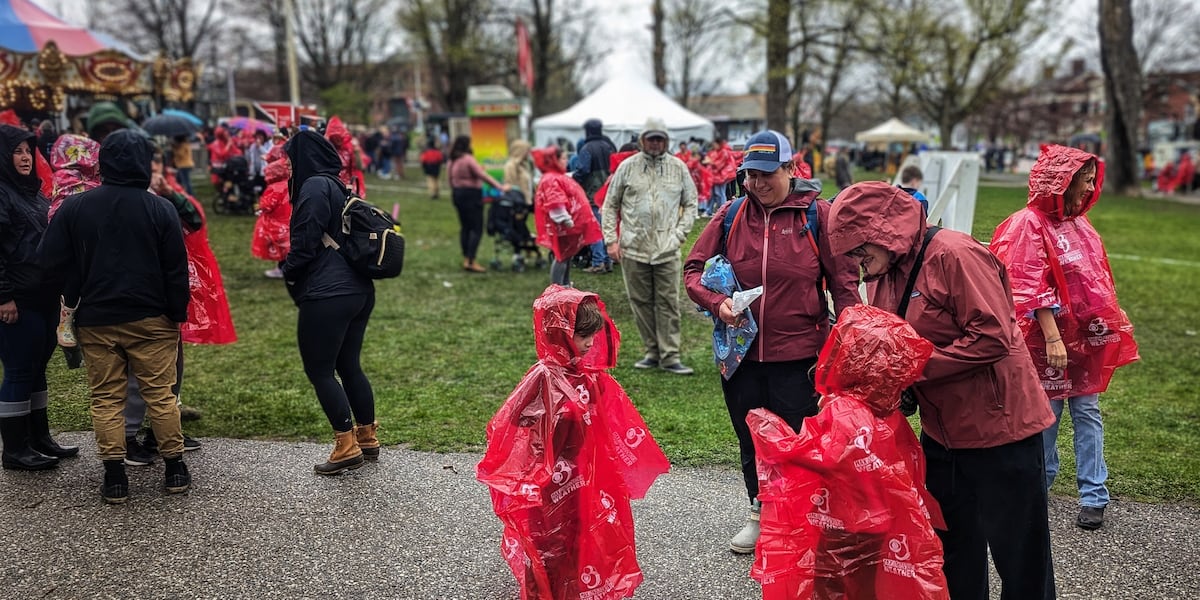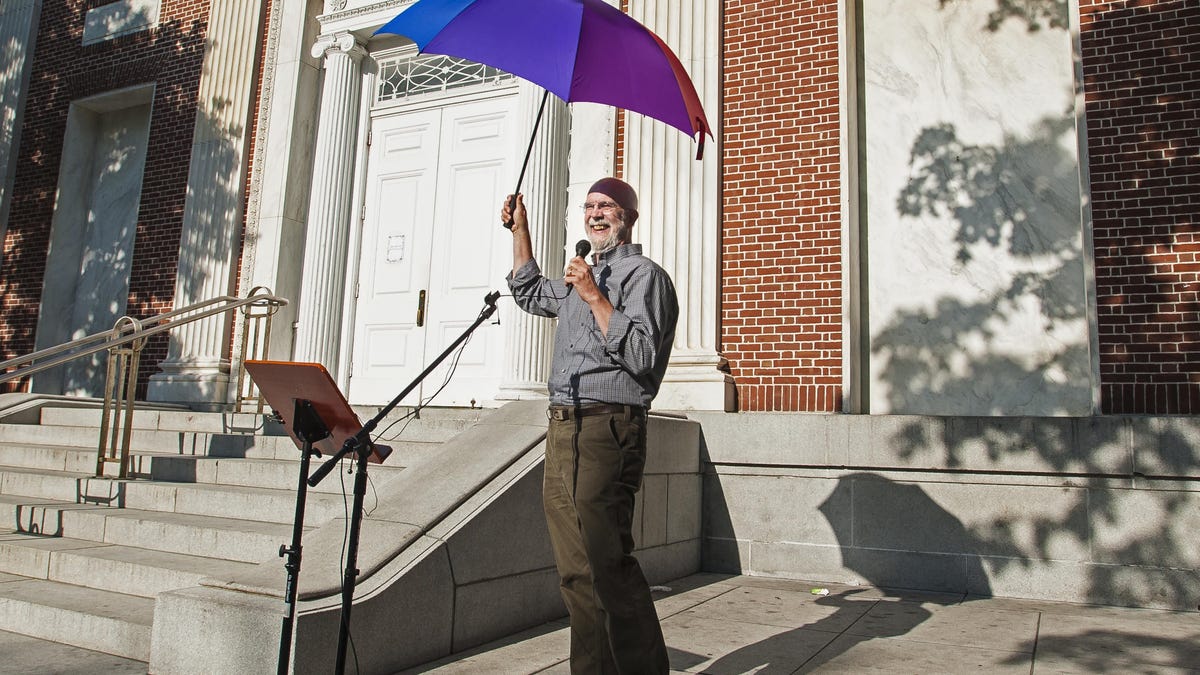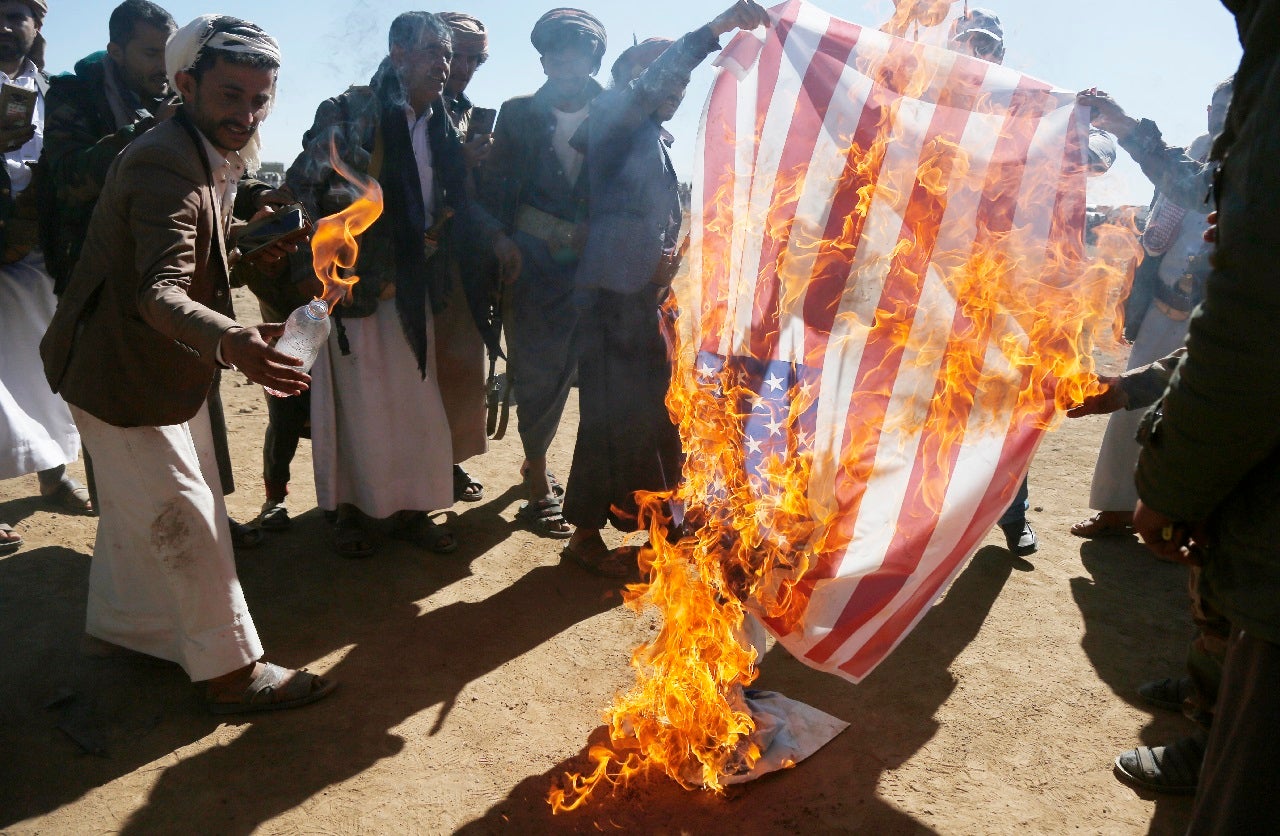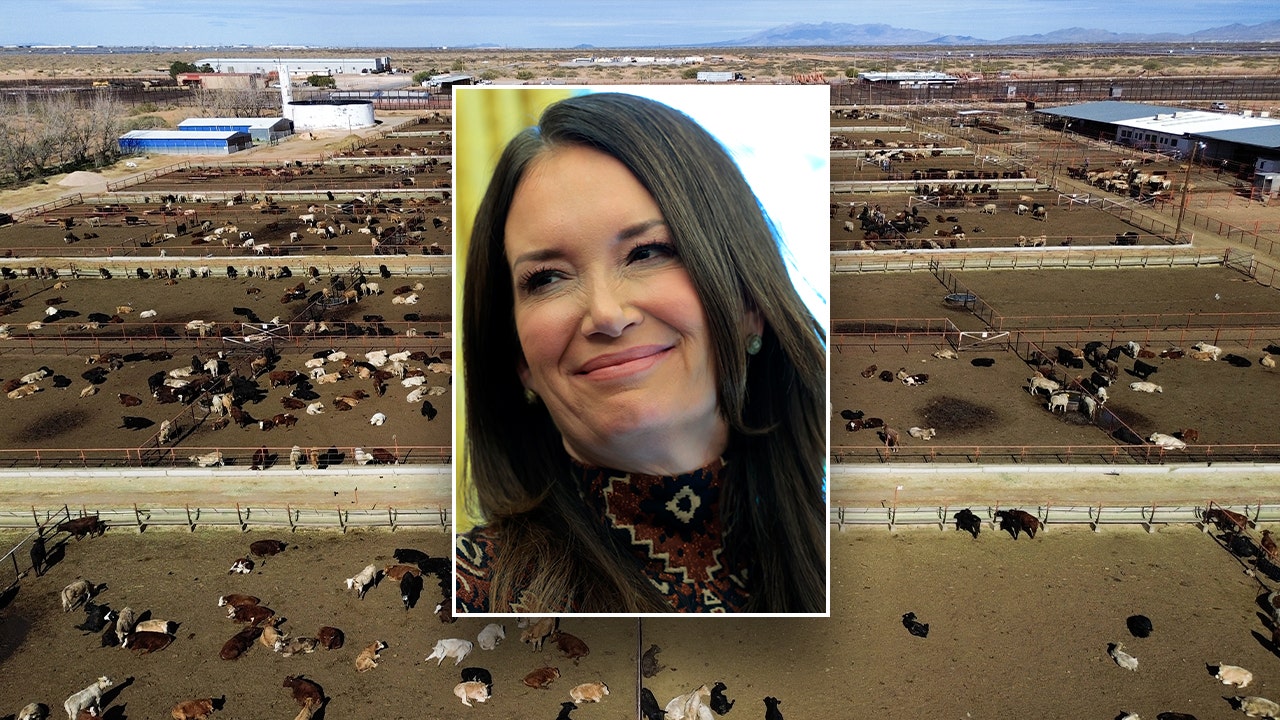Vermont
Federal funds to fix state railroads
/cloudfront-us-east-1.images.arcpublishing.com/gray/UAQ37SRMMFE4BPCGVLEY2WQKYM.jpg)
BURLINGTON, Vt. (WCAX) – More federal cash is on the way to fix up Vermont railroads. According to Vermont’s Agency of Transportation, this summer’s floods knocked out about 63 miles of state-owned rail. Officials are still assessing how much it will cost taxpayers. But this week, federal leaders announced that the federal government will cover the cost of rebuilding all state-owned rail
“FEMA has finally recognized that the state of Vermont is responsible for the maintenance of Vermont rail. That is a breakthrough because that means that the state of Vermont will be eligible for tens of millions of disaster relief to rebuild the rails.” said Senator Bernie Sanders
It’s not yet known when the money will be available to the state.
Copyright 2023 WCAX. All rights reserved.

Vermont
Soggy Saturday at the Vermont Maple Festival

ST. ALBANS, Vt. (WCAX) – A soggy Saturday didn’t scare these Maple Fest goers away.
“I’m having a lot of fun,” said Violet Bilodea
Bilodea got her face painted and a balloon animal made for her.
“It’s a bat, and it’s black.”
But her favorite part? “Spending time with my parents,” said Bilodea. Families still enjoyed the rides, wood carvings, live music and everything maple.
“Selling milkshakes, sugar on snow, snow cones and sundaes,” said Brian Howrigan. Volunteer Brian Howrigan says the festival is a great way to appreciate Vermont’s foundation.
“Agriculture is kind of the heartbeat of Vermont and I think that it’s a good time to celebrate that,” said Howrigan.
And though Violet preferred when the wet weather held off.
“I really like when the rain’s not pouring down so my family won’t get rained on sometimes,” said Bilodea.
Her family still had a ton of fun. The final day of the Maple Fest is Sunday with a parade to cap off the weekend.
Copyright 2025 WCAX. All rights reserved.
Vermont
How did gay marriage become legal? How civil unions paved the way 25 years ago.

Gay marriage, once an unpopular concept nationwide, is widely accepted in Vermont today.
“People take for granted that same-sex couples can get married nowadays,” said Bill Lippert, 75, one of Vermont’s first openly gay lawmakers. “You can reference your husband or wife casually now in conversation. But if you weren’t around 25 years ago, there isn’t always an appreciation for how hard we had to fight.”
April 26 marks the 25th anniversary of civil unions – marriage for same-sex couples in all but name – becoming state law. Although civil unions were deeply controversial even among Vermonters at the time, they served as the first pivotal step toward full marriage equality, Lippert said.
In 2000, Vermont became the first place in the world to grant marriage-equivalent legal rights to same-sex couples. Domestic partnerships existed in some places, but those unions “usually only granted a few legal rights,” Lippert said.
“The eyes of the whole country and world were focused on what Vermont was doing in 2000,” said Lippert, who helped craft the civil unions bill while serving on the house judiciary committee.
Three years later Massachusetts became the first state to legalize gay marriage, followed by Connecticut and Iowa in 2008. Vermont followed suit in 2009. Several more states legalized same-sex marriage before U.S Supreme Court finally made it nationwide law in 2015 through the Obergefell v. Hodges case.
“One can see the direct connection between what Vermont did in 2000 with civil unions to what followed in Massachusetts and eventually with Obergefell in 2015,” Lippert said.
Life before civil unions
Prior to the creation of civil unions, gay and lesbian couples lacked “a thousand more rights” than married straight couples, Lippert said, no matter how long they had been together.
For instance, if one partner in a same-sex relationship was in hospital, the other partner did not automatically have the power of attorney.
“That was one of the most painful ones,” Lippert said.
Lippert recalled one particularly egregious case that happened to a lesbian couple with a child. When the partner who had given birth to the child died in a car crash, her parents fought for custody even though the two women had been raising the kid together.
“The list goes on and on,” Lippert said.
Although Vermont eventually established “second parent adoption” in 1993, there still wasn’t a “legal connection between partners,” Lippert noted.
“That side of the triangle was missing,” he said.
The road to civil unions: ‘The Baker Case’
In the late 90s, three lawyers and three same-sex couples decided it was time to test Vermont’s marriage laws.
In 1998, three Vermont same-sex couples applied for marriage licenses in Chittenden County. When their marriages were denied, they filed a lawsuit that became known as Baker v. Vermont, or informally ‘the Baker Case,’ after the last name of one of the plaintiffs. A Vermont Superior Court judge ruled to dismiss the case, so the plaintiffs made an appeal to the Vermont Supreme Court.
What the Vermont Supreme Court did next shocked everyone. Instead of either legalizing gay marriage or striking down the case, the justices ruled in 1999 that same-sex couples should be afforded all the same legal rights as heterosexual couples but left it up to the Vermont legislature whether to grant gay couples the ability to marry or form an equivalent union.
“Personally, I was shocked because I had been assured by the attorneys fighting for gay marriage that we would never have to vote on it in the legislature,” Lippert said. “Many of my colleagues were, frankly, beyond anxious – terrified – because they never wanted to deal with the issue because it was so controversial.”
At the time, some states were changing their constitutions to outlaw gay marriage. The Defense of Marriage Act also went into effect two years prior. In Vermont specifically, only 20% of residents supported gay marriage.
Gay marriage “was not a popular proposal,” Lippert recalled. “It was hotly condemned and fought against by major religious groups as an affront to their religious sacraments.” One of their main fears was that churches would be forced to marry gay couples.
‘Separate but equal’
The Vermont legislature was already in mid-session when the court dropped the issue of gay marriage in their laps. The house judicial committee, where Lippert served as vice chair, was tasked with writing the bill that would grant gay couples the right to marry or to form an equivalent union.
After listening to weeks of testimony from supporters and opponents of gay marriage, the committee voted to create a “parallel legal structure,” which they named civil unions, Lippert said.
“It was very disappointing for the attorneys and advocates, but it was clear that we did not have the votes to create full marriage for same-sex couples,” said Lippert, who was among the three committee members to vote for gay marriage.
Some gay marriage advocates at the time found the idea of civil unions insulting and akin to the concept of “Separate but equal.”
Some activists said civil unions were like “having to sit on the back of the bus” and refused to support the bill, Lippert said. “Others said, ‘At least we’re on the bus.’”
The lawsuit plaintiffs and their attorneys decided “it was better to pass something achievable than pass something that would fail and then get nothing,” Lippert said.
Victory uncertain
On the day house reps were scheduled to vote, Lippert and his committee members weren’t sure if they had enough support to pass civil unions in house. Some representatives wouldn’t share their plans, while others kept saying they “needed more information” before they could decide which way to vote.
For some representatives, a “yes” vote guaranteed they would lose their seats in either the primary or general elections later that year.
“Until the roll call, none of us knew we were going to win,” said Lippert. “It would have taken a few votes to switch and we would have lost.”
After 12 hours of debate and testimony that day, the Vermont house voted 76-69 to pass the civil unions bill.
Lippert primarily attributed the win to “courageous” gay Vermonters, loved ones and other advocates who shared personal stories throughout the bill process. Some gay people even came out publicly for the first time to throw their support behind the bill.
Lippert also thinks the “hateful phone calls and letters” legislators received made them realize why civil unions were necessary.
“They saw why we needed this,” Lippert said. “That if this is the level of prejudice and hatefulness that comes at me, what must it be like for gay people? The hate backfired.”
Once civil unions passed the house, it was much smoother sailing for gay advocates. The senate, which had a higher percentage of Democrats than the house, passed civil unions 19-11.
Gov. Howard Dean, who already voiced his approval of civil unions, signed the bill into law soon after – albeit behind closed doors and without fanfare.
“He said publicly that marriage for same-sex couples made him uncomfortable” but that he could back civil unions, Lippert remembered. Even still, Dean’s support was “crucial.”
“If he hadn’t been willing to say he would sign the bill, I don’t think we would have passed it,” Lippert said. “People wouldn’t have risked voting for it.”
The aftermath
Later that year, 17 legislators who voted for civil unions in April 2000 lost their seats to opponents who promised to help repeal the institution. Dean, who had to wear a bulletproof vest during his gubernatorial campaign, also faced an ardent anti-civil unions challenger.
“It’s hard to explain the level of controversy and some of the hatefulness directed at the governor and lawmakers,” Lippert said.
The following session, the now more conservative house managed to repeal civil unions by one vote, but the effort died in the senate.
Between 2000 and 2009, thousands of gay couples from other states and nations traveled to Vermont to enter civil unions. They wanted legal recognition of their relationship somewhere even if their home state or country wouldn’t respect it, Lippert said.
“At the time, I would have been happy to have settled the case in court,” Lippert said. “But looking back, I think it would have garnered greater backlash if the court had granted gay marriage or an equivalent institution directly.”
That’s what happened in Hawaii. In 1996, the Hawaiian Supreme Court ruled that it was unconstitutional to deny marriage to same-sex couples. An enormous public backlash ensued, and by 1998, Hawaiians had changed their state constitution to outlaw gay marriage.
Amending Vermont’s constitution wouldn’t have been as easy – it takes multiple years versus only one in Hawaii – but there definitely were some lawmakers who wanted to, Lippert said. Such an amendment never got off the ground, however.
“My view is civil unions was a historic step for civil marriage for same-sex couples,” Lippert said. “Saying that full marriage equality was important does not take away from civil unions moving us to marriage equality in a profound way.”
Lippert and his spouse eventually entered a civil union themselves. They then got married once Vermont legalized what Lippert now calls “full marriage equality.”
Vermont
Federal judge upholds ruling to bring detained Tufts student to Vermont and more top stories

Watch CBS News
Be the first to know
Get browser notifications for breaking news, live events, and exclusive reporting.
-

 Education1 week ago
Education1 week agoRead the Letter From Kristi Noem to Harvard
-

 Education1 week ago
Education1 week agoVideo: Shooting at Florida State University Leaves 2 Dead and 6 Injured
-
News1 week ago
Harvard would be smart to follow Hillsdale’s playbook. Trump should avoid Biden’s. | Opinion
-
Business1 week ago
Porto's Bakery moving forward in Downtown Disney, replacing Earl of Sandwich
-

 Politics1 week ago
Politics1 week agoSupreme Court blocks new deportations of Venezuelans in Texas under 18th century Alien Enemies Act
-

 Politics1 week ago
Politics1 week agoTrump admin imposes sanctions against Bank of Yemen for supporting Houthis
-

 News1 week ago
News1 week agoThe NHL Stanley Cup Playoffs begin Saturday. Here's what to watch for
-

 Politics5 days ago
Politics5 days agoVideo: Hegseth Attacks the Media Amid New Signal Controversy


















